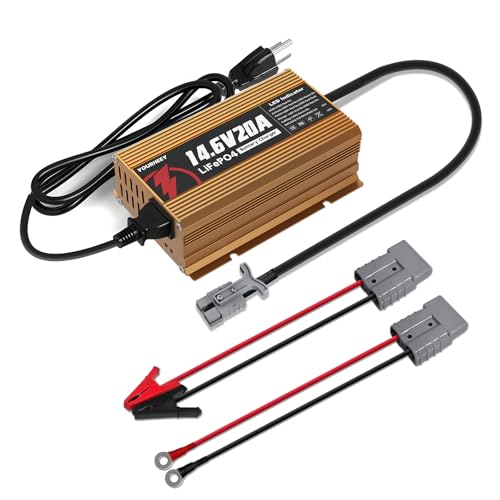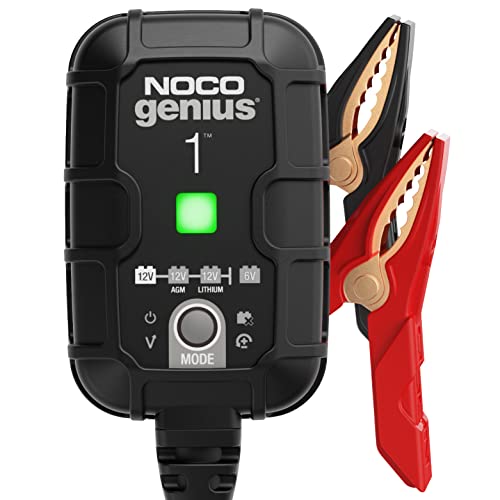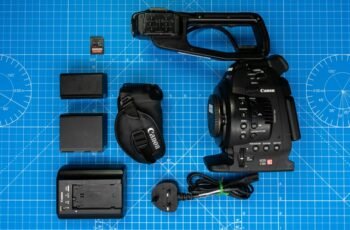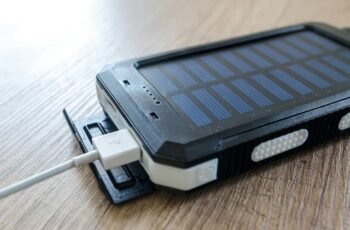By coincidence, many of us upgraded to LiFePO4 packs just as smarter chargers hit the market. We value speed, safety, and cell longevity, so we narrowed 2025’s options to models with true LiFePO4 profiles, 14.6V precision, 0V wake, and robust protections. We’ll compare single- and multi-bank units, portability, and marine-friendly builds, plus where each fits best. One pick surprised us on performance per dollar—let’s see which chargers earned a spot.
Key Takeaways
- Prioritize chargers with a true 14.6V LiFePO4 profile, 0V activation, and robust protections (reverse polarity, over-voltage, short-circuit, overheat).
- Match charger current to battery capacity using 0.2C–0.5C; pick 10A–20A for 50–100Ah packs, 2A–4A for small 12V batteries.
- Consider multi-bank options like NOCO GENPRO10X4 for boats or RVs needing independent charging across mixed chemistries.
- Look for temperature compensation, deep-discharge wake, and accurate CC→CV algorithms for faster, safer top-offs and maintenance.
- Choose connectors that fit your setup—Anderson for high-current, ring terminals for permanent install, clips for portable use.
NEXPEAK NC215 15A Smart Battery Charger and Maintainer (12V/24V)
Need a single charger that jumps between car, truck, and boat batteries without fuss? We like the NEXPEAK NC215. It pushes 15A at 12V (8A at 24V), supports LiFePO4 plus AGM, GEL, SLA, and flooded, and auto-switches between 12V/24V systems. Its 9-stage algorithm charges faster than typical 10A units, then holds on trickle/float. Pulse repair can detect sulfation and may revive performance. We get temp compensation for hot/cold climates, a large color LED readable in sunlight, and simple clamp-select-plug operation. Safety’s solid: overcurrent, overvoltage, short-circuit, reverse, fireproof housing, cooling. Downsides: not waterproof and won’t wake fully dead batteries.
Best For: DIYers and vehicle owners who need one smart charger to maintain and charge multiple 12V/24V batteries across cars, trucks, boats, and off-grid gear, including LiFePO4 and lead-acid types.
Pros:
- 15A (12V) / 8A (24V) output with 9-stage charging for faster, safer charging and long-term float maintenance
- Broad chemistry support (LiFePO4, AGM, GEL, SLA, flooded) with auto 12V/24V switching and temperature compensation
- Large sunlight-readable color display and simple clamp-select-plug operation; includes pulse repair for sulfation
Cons:
- Not waterproof; better suited to indoor or protected use
- May not activate or charge completely dead batteries
- Cable lengths are modest and may be limiting for some setups
NOCO Genius GENPRO10X4 4-Bank 40A Marine Battery Charger
For multi-battery boats that demand reliable, set‑and‑forget charging, the NOCO Genius GENPRO10X4 stands out with four independent 10A banks and true 12V LiFePO4 support. We get a compact, marine‑grade, IP68‑sealed onboard charger that’s 10% smaller and 33% more powerful than the old GEN4, with USA engineering and a 3‑year warranty. Each bank handles 12V, AGM, Lithium, and Repair modes, so we can mix chemistries confidently. An integrated thermal sensor fine‑tunes voltage to avoid overcharge in heat and undercharge in cold. It can charge from 1V, and Force Mode revives zero‑volt batteries. Installation’s simple, any orientation, with anti‑vibration backing.
Best For: Multi-battery boat owners who need a compact, marine-grade onboard charger with four independent 10A banks, mixed-chemistry support (including LiFePO4), and reliable set-and-forget performance.
Pros:
- Four independent 10A banks (40A total) with selectable 12V, AGM, Lithium, and Repair modes; true LiFePO4 support
- IP68 waterproof, marine-grade build with anti-vibration backing; engineered in the USA and backed by a 3-year warranty
- Precision charging with thermal sensor; charges from 1V and Force Mode can recover zero-volt batteries
Cons:
- Fixed 10A per bank may be overkill for small batteries or underpowered for very large banks
- Requires permanent installation and mounting space despite compact size
- Repair/Force modes require manual engagement and user understanding to use safely
NEXPEAK 15A Smart Battery Charger and Maintainer (12V/24V)
Packing 15 amps at 12V with a true 9-stage algorithm, the NEXPEAK NC215 stands out if you want faster, smarter LiFePO4 charging without sacrificing safety. It also handles 24V at 8A, outpacing typical 8–10A units. We like its broad compatibility: LiFePO4, AGM, GEL, SLA, and flooded batteries across cars, trucks, motorcycles, lawn equipment, and boats.
The TKL trickle/float mode auto-maintains charge, preserving cycle life during long absences. It isn’t a jump starter, so plan accordingly. The large color display shows voltage, amps, temperature (°F/°C), charge %, and seasonal mode. With temp compensation, reverse/overvoltage/short protections, cooling, and pulse repair, it’s a safe, capable maintainer.
Best For: Drivers, boaters, and DIYers who need a fast 12V/24V smart charger/maintainer for LiFePO4 and lead-acid batteries across cars, trucks, motorcycles, lawn equipment, and boats, with safe long-term maintenance.
Pros:
- 15A at 12V (8A at 24V) with true 9-stage charging for faster, smarter charging than typical 8–10A units
- Broad compatibility: LiFePO4, AGM, GEL, SLA, flooded; automotive, marine, and deep-cycle applications
- TKL trickle/float mode with temperature compensation and robust protections (reverse, overvoltage, short, cooling)
Cons:
- Not a jump starter; cannot crank a dead engine
- Pulse repair cannot revive totally dead or severely damaged batteries
- 6.7 ft cord may be short for some setups without an extension cord
ULTRAPOWER 4A 14.6V LiFePO4/LiPo Smart Battery Charger and Maintainer
Looking for a compact, 4-amp smart charger that safely wakes up and maintains 12.8–14.6V LiFePO4 packs? We like the ULTRAPOWER EP6012F4 for its stabilized 14.6V profile, microprocessor control, and dependable 0V reactivation. It auto-detects battery status, adjusts current, and stops at full, then auto-recharges to maintain health. The 4-LED readout shows 25–100% and faults. Safety is solid: ETL listed, with overcharge, short-circuit, overheating, and reverse polarity protection.
At 2.6 x 4.6 x 1.9 inches and 1.08 lb, it’s easy to stash. It includes clips plus 5525 and lotus adapters. Users report quick top-ups, portable power-bank use, and best results in the 2–4A spec range.
Best For: Owners of 12.8–14.6V LiFePO4/LiPo batteries who need a compact, 4A smart charger that can safely revive 0V packs and maintain vehicles or equipment like cars, motorcycles, boats, and golf carts.
Pros:
- 4A microprocessor-controlled charging with stabilized 14.6V profile, auto cut-off, and auto-maintain for battery longevity
- Safety-focused: ETL listed with protections for overcharge, short-circuit, overheating, and reverse polarity
- Compact and portable (2.6 x 4.6 x 1.9 in, 1.08 lb) with multiple connectors (clips, 5525, lotus) and clear 4-LED status/fault display
Cons:
- Limited to 12.8–14.6V LiFePO4/LiPo batteries; not suitable for lead-acid or other chemistries
- 4A max may be slow for very large-capacity batteries or fleets
- Clips can be finicky about making solid contact, requiring careful placement
14.6V 10A LiFePO4 Battery Charger for 12V Lithium Batteries
Shoppers who want a true LiFePO4-specific profile and faster turnarounds will appreciate this 14.6V 10A charger tailored to 12V (12.8V nominal) lithium batteries. It’s not for lead-acid. We get >90% efficiency, an LED status light, and a cooling fan that acts as a heat sink for thermal protection. Expect a 50Ah pack to reach 50% in about 2.5 hours—roughly twice as fast as 5A units.
BROODAY’s durable, 1.12‑lb design includes color‑coded alligator clips and simple operation, plus 24‑hour technical support. Mind polarity and disconnect AC before hooking up. User feedback notes solid value, with some units delivering 7–10A. ASIN B0D8W1THH6.
Best For: 12V (12.8V) LiFePO4 battery owners who want a fast, efficient, lithium-specific 10A charger with simple clip-on operation and thermal protection.
Pros:
- 10A output charges faster than 5A units (e.g., 50Ah to ~50% in ~2.5 hours)
- LiFePO4-specific 14.6V profile with >90% efficiency and LED status indicator
- Durable, lightweight design with color‑coded alligator clips and 24‑hour support
Cons:
- Not compatible with lead-acid batteries
- Some users report actual charging current varies (~7–10A)
- Cooling fan noise/behavior may be noticeable during operation
14.6V 2A LiFePO4 Battery Charger for 12V Batteries with Alligator Clips
Need a compact, alligator‑clip charger that tops 12V LiFePO4 packs to a precise 14.6V? We like this 14.6V 2A model (ASIN B0DCVY4968) for steady, battery‑friendly charging. It accepts 100–240V AC, outputs up to 2A, and suits 4S LiFePO4 packs (9–14.6V window) like LF120A1, LF4011, LF4021, LF4100, and LF4040. Alligator clips make direct terminal hookups simple—red positive, black negative.
We get CE/FCC/RoHS certifications and protections for over‑voltage, over‑current, overload, over‑heat, and short circuit. The LED shows status. It’s 6.7 oz, with a 4.9‑ft lead and durable shell. Also compatible with 12V SLA. Warranty: 30‑day refund, 12‑month exchange.
Best For: DIYers and hobbyists needing a compact, safe 14.6V/2A charger with alligator clips for topping off 12V (4S) LiFePO4 packs and compatible 12V SLA batteries.
Pros:
- Accurate 14.6V charge profile for 4S LiFePO4; LED status and built‑in protections (OV/OC/OL/OT/short) for safety
- Universal 100–240V input, 2A output, and 4.9‑ft lead with durable shell for convenient, portable use
- Alligator clips simplify direct terminal connection; compatible with select Talentcell packs and 12V SLA
Cons:
- 2A current can be slow for larger capacity batteries
- Some users report unit warmth during operation
- Barrel connector size may not fit all devices; verify if not using clips
16 Amp Smart Battery Charger and Maintainer (6V/12V/24V) for Car, Boat, Motorcycle
Power users who juggle cars, boats, and bikes will appreciate the Haisito 16A Smart Charger’s broad voltage support (6V/12V/24V) and true LiFePO4 compatibility. We get a compact 1.25 lb unit with a bright LCD and modes for charging, maintaining, trickle/float (TKL), and pulse repair. It handles Lithium, LiFePO4, and AGM/Gel/SLA, with a 10-stage process emphasizing safety and efficiency. A built-in temp sensor enables charging from 14°F to 140°F, and protections cover shorts, over/undervoltage, and overcurrent. Users praise versatility, but note radio interference, heat-related throttling, and mixed repair results. It maintains batteries well; just monitor lithium settings and expectations.
Best For: Power users who need a compact, versatile charger/maintainer for cars, boats, and motorcycles across 6V/12V/24V, including true LiFePO4 and lead-acid chemistries.
Pros:
- Broad compatibility: 6V/12V/24V and Lithium/LiFePO4/AGM/Gel/SLA with 10-stage smart charging
- Handy features: maintainer, trickle/float (TKL), pulse repair, and bright daytime-readable LCD
- Built-in temperature sensor and multiple protections for safer charging in varied conditions
Cons:
- Potential radio interference and fan noise; may throttle under heat
- Pulse Repair won’t revive totally dead batteries; results vary across battery health
- Mixed user reports on actual charge current/efficiency and missing total Ah readout
12V 20A LiFePO4 Battery Charger with Anderson Connector
Looking for a 12V LiFePO4 charger that hits a true 14.6V at a robust 20A and plugs straight into an Anderson connector? This 12V 20A LiFePO4 Battery Charger (yourheey, model 12V 20A CHARGER, ASIN B0F21L9DWP) delivers. It’s optimized for LiFePO4 with precise CC/CV and float/cut-off behavior, 0V activation for deeply depleted packs, and a consistent 14.6V finish. We like the 50A Anderson for plug‑and‑play, plus M8 terminals and alligator clips. Safety’s solid: CE/RoHS, over-voltage, reverse polarity, short-circuit, and overheat protection with active cooling. Dimensions are compact at 3.15 x 7.09 x 2.36 inches, 2.4 lb. Users note short cords; performance rates 4.4/5. One‑year warranty.
Best For: DIYers and professionals needing a true 14.6V, 20A LiFePO4 charger with plug‑and‑play Anderson connectivity for deep‑cycle 12V batteries in RVs, boats, forklifts, and similar applications.
Pros:
- True 14.6V output at 20A with precise LiFePO4 CC/CV and auto float/cut‑off; includes 0V activation for deeply depleted packs
- Flexible connections: 50A Anderson plug plus M8 terminals and alligator clips
- Robust safety: CE/RoHS certified with over‑voltage, reverse polarity, short‑circuit, and overheat protection; active cooling
Cons:
- Power and battery leads reported as short by some users
- Mixed feedback on automatic shutoff behavior in certain scenarios
- Single input option (110V AC) limits use where 220–240V mains are standard without a step‑down transformer
14.6V 20A LiFePO4 Battery Charger with Anderson Plug
If you prioritize fast, foolproof top-offs for 12V LiFePO4 packs, this 14.6V 20A charger with an Anderson plug stands out. We like its true 14.6V profile and 20A output, which quickly recovers medium to large batteries. The aluminum body, big cooling fan, and IP67 rating inspire confidence for garages, docks, and dusty work sites.
Connectivity’s flexible: Anderson direct, or included clips and ring terminals. It’s plug-and-play, with LED status, smart trickle near full, and auto stop on green. Protections cover over-voltage, over-current, over-charge, short-circuit, reverse polarity, and temperature. At 3.53 lb with a robust cord and handle, it’s portable—but user reviews note occasional overheating.
Best For: DIYers, boat/RV owners, and off-grid users who need fast, reliable top-offs for 12V LiFePO4 batteries with flexible connection options and rugged, IP67-rated durability.
Pros:
- True 14.6V LiFePO4 profile with 20A output for quick charging of medium-to-large 12V packs
- Versatile connectivity: Anderson plug, alligator clips, and ring terminals; simple plug-and-play with LED status and auto stop
- Rugged build: aluminum body, large cooling fan, IP67 waterproof/dustproof, robust rubber cord, compact with handle
Cons:
- Reports of units running hot or overheating/smoking in some user reviews
- Fan noise and heat may be noticeable during high-current operation
- One-year warranty is modest; mixed long-term reliability feedback
NOCO GENIUS1 1A Smart Battery Charger and Maintainer for 6V/12V Lead-Acid & Lithium Batteries
Compact yet capable, the NOCO GENIUS1 stands out for riders and homeowners who need a gentle, set‑and‑forget maintainer for smaller 12V LiFePO4 packs and seasonal gear. We like its 1A smart charge profile, thermal sensor, and safe indefinite maintenance that prevents overcharge. It also supports 6V/12V lead‑acid types and can wake low‑voltage batteries down to 1V, with Force Mode for dead packs.
It’s tiny (3.5 x 2.3 x 1.3 in), light, and includes clamps plus integrated eyelets on a 110″ lead. While Force Mode can be quirky when connected in‑vehicle, overall usability, reliability, three‑year warranty, and price make it a solid keeper.
Best For: Riders and homeowners who need a compact, set-and-forget 1A smart maintainer for 6V/12V lead-acid and 12V LiFePO4 batteries on seasonal or standby equipment.
Pros:
- Smart 1A charging with thermal compensation and safe indefinite maintenance to prevent overcharging
- Can revive low-voltage batteries (down to 1V) and includes Force Mode for completely dead packs
- Compact, lightweight design with long 110″ lead, clamps, integrated eyelets, and a 3-year warranty
Cons:
- Force Mode behavior can be quirky, especially when the battery remains connected in-vehicle
- 1A output is slow for larger automotive or deep-cycle batteries
- Some users report minor setup/operational quirks despite overall ease of use
Factors to Consider When Choosing 12V LiFePO4 Chargers
Before we pick a charger, let’s make sure it uses a true LiFePO4 charging profile and offers the right amperage for the speed we want. We’ll match its output to our battery’s capacity and confirm a robust safety suite—over/under-voltage, short-circuit, reverse polarity, and thermal protections. We should also look for temperature compensation to protect performance in hot and cold conditions.
Correct Charging Profile
Charging-profile accuracy makes or breaks LiFePO4 longevity, so we look for a smart CC/CV charger that targets about 14.6V (often 14.4V on the label) and transitions to a gentle float to maintain charge without overdoing it. That voltage window suits 4S LiFePO4 packs and protects cycle life with tight regulation.
We also verify the charger’s algorithm is LiFePO4-specific. Some “smart” models add recovery or desulfation modes; those are fine only if they avoid aggressive, high-voltage pulses meant for lead-acid. Temperature compensation matters, too—proper control trims voltage in heat and nudges it up in cold, preventing overcharge or chronic undercharge.
Finally, we want 0V activation support. A good charger can safely wake a deeply discharged pack without stressing the cells or confusing the BMS.
Amperage and Speed
With the right profile in place, speed comes down to amps. Once we’re in a LiFePO4 CC/CV routine with a fixed peak near 14.6V, amperage mostly dictates how long the constant‑current phase lasts. A 15A–20A charger will finish far faster than a 2A–4A unit, but it can run hotter and may stress weaker setups if the BMS or wiring isn’t up to it.
We like chargers that offer selectable currents—say 5A/10A/20A—so we can dial back for gentler, cooler charging or crank up when time matters. Models that regulate directly to 14.6V and smoothly taper into CV, then trickle or float, keep things tidy at the top. Note that auto‑shutoff and drop‑off behavior vary by brand, affecting how aggressively current is delivered near full.
Battery Capacity Match
How big is your battery, and how fast do you want to fill it? Capacity drives charger choice. We match the charger’s current to the battery’s amp-hours so charge time and stress stay reasonable. A good rule for LiFePO4 is 0.2C to 0.5C—so a 100Ah pack likes 20A to 50A. Undershooting that amps range stretches charge time; overshooting can exceed recommended rates.
We also ensure the charger targets LiFePO4 specifics: a 12V class charger with a LiFePO4 profile that terminates at 14.6V and recognizes a 12.8V nominal pack. That avoids under- or over-voltage.
Got multiple batteries? We pick a multi-bank charger that independently manages each battery, preventing imbalance across the bank. Bottom line: match amps to capacity and voltage to chemistry.
Safety Protections Suite
Why gamble with a pricey LiFePO4 pack when a charger’s safety suite can do the guarding for us? We should insist on a full set of protections: overcurrent to stop runaway amps, overvoltage to cap the top end, short-circuit to cut a hard fault instantly, and reverse polarity to prevent a wrong-lead mistake. Temperature protection should halt or taper charging if things get too hot.
We also want fire-minded design. Fireproof housings and efficient cooling—fans or smart heat sinking—lower thermal stress during bulk charge and float maintenance. Look for automatic shutoff or clean CC-to-CV/finish transitions that stop at the correct LiFePO4 voltage, protecting long-term health. Bonus points for pulse repair modes that safely address sulfation-like issues and revive weak cells without hammering the chemistry.
Temperature Compensation
Seasons swing, and smart chargers swing with them—temperature compensation tweaks charge voltage and current as the mercury moves so we don’t overcharge in heat or undercharge in cold. It’s a must-have for stable, year-round LiFePO4 performance.
We should look for chargers that sense ambient or battery temperature and actively adjust during their multi-stage (often 9-stage) algorithms. By fine-tuning voltage in real time, they keep cells balanced across climates, prevent overvoltage stress in hot conditions, and avoid sluggish, incomplete charging in the cold.
The payoff is tangible: less battery stress, longer cycle life, and higher charging efficiency. Without compensation, heat can push voltage too high—risking gassing and degradation—while cold can slow current acceptance and block full capacity recovery. If we camp, cruise, or store gear across seasons, temperature-aware charging protects our investment.
Connector Compatibility
Where do great chargers stumble? Connector compatibility. We match the charger’s leads to our battery terminals—Anderson, alligator clips, or ring terminals—so we don’t rely on adapters that add resistance or fail under load. For high-current LiFePO4 packs, we prioritize chargers with Anderson connector input/output for secure, plug‑and‑play connections and low-loss current transfer.
We also verify polarity: clear (+/–) labels on clamps and terminals reduce reverse-connection risk that can damage LiFePO4 cells. Cable length matters, too; included leads of 6.7 ft or more let us reach the battery without stretching, straining, or creating loose connections.
Finally, we ensure the charger’s interfaces and accessories match our setup and that it supports 12V LiFePO4 profiles with robust polarity protection.
Conclusion
We’ve covered the best 12V LiFePO4 chargers of 2025—safe, fast, and gentle on your batteries. What’s striking? A well-matched LiFePO4 charger can extend cycle life by up to 30% compared to generic chargers, thanks to precise 14.6V CC/CV profiles and smart protections. Whether we’re outfitting a boat, RV, or workshop, features like 0V wake, temperature compensation, and multi-bank options make a real difference. Choose wisely, charge faster, and protect your investment for the long haul.












